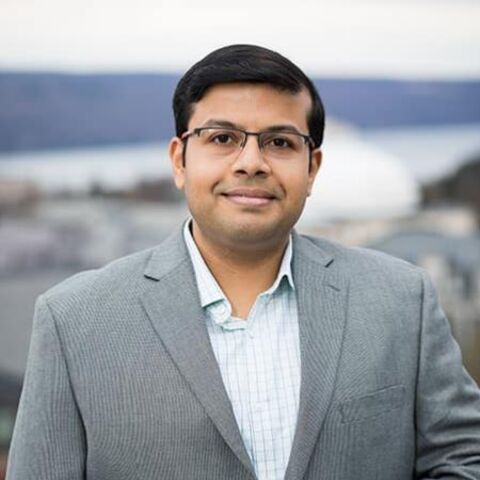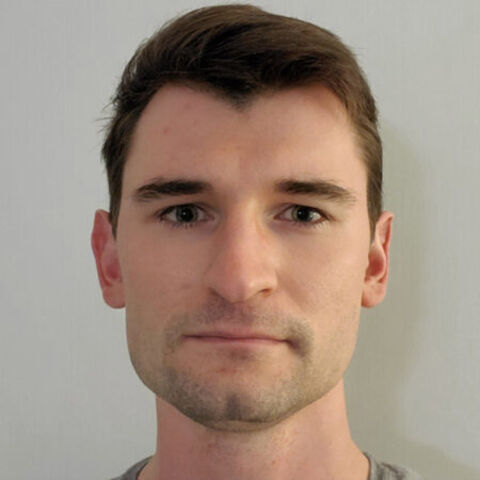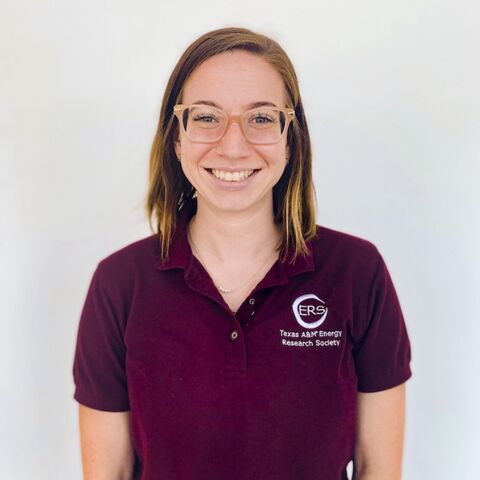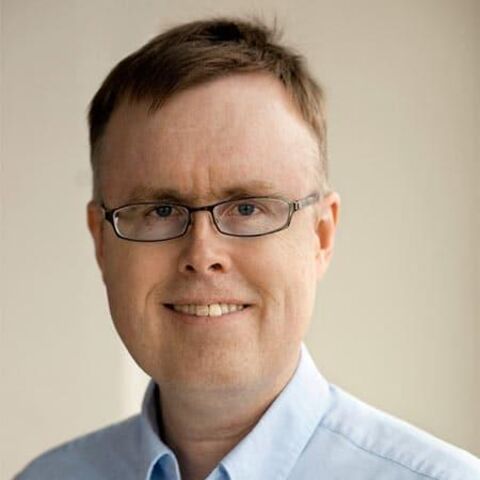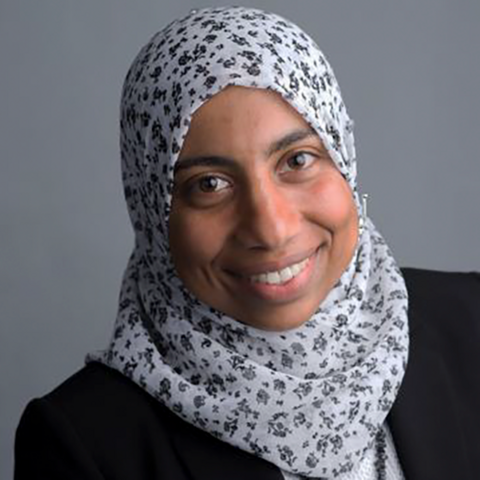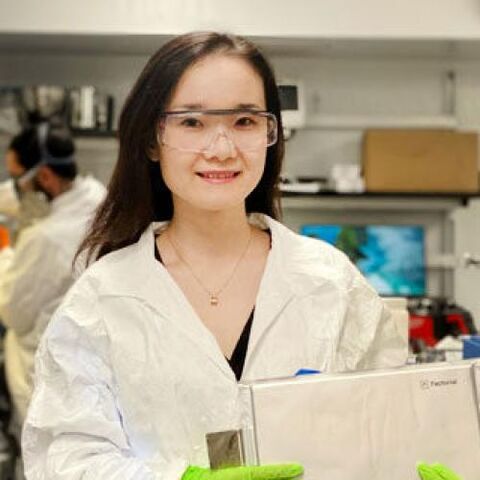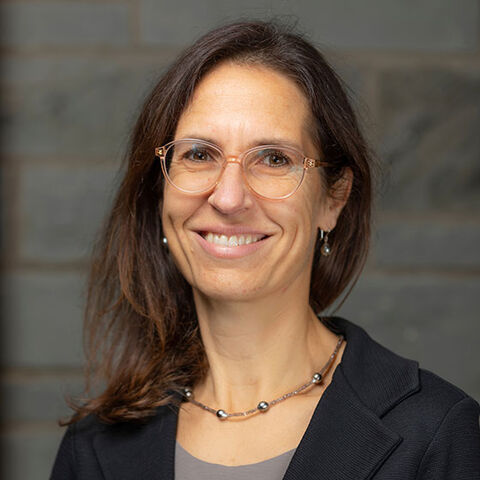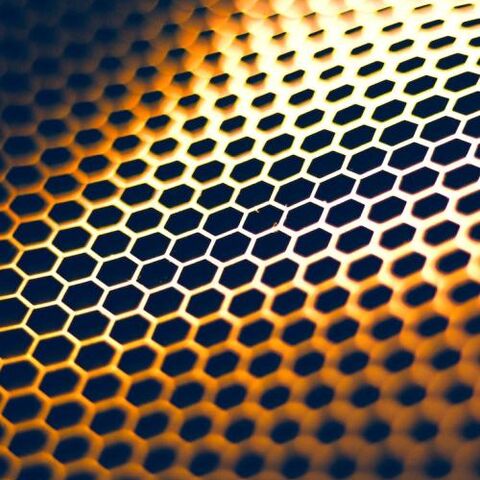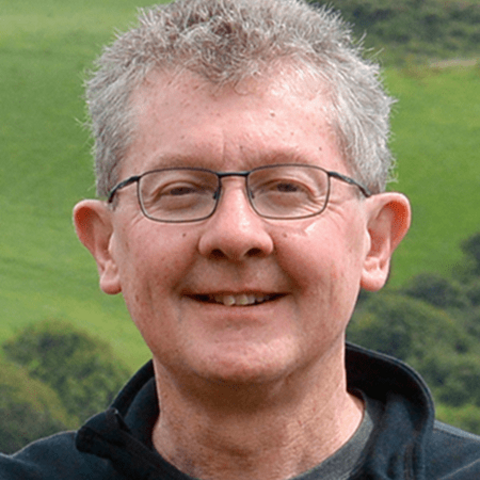News and Events
Full listing
April 27, 2023
Five faculty from the College of Arts and Sciences will be featured on a “Cornell week” on The Academic Minute radio program from May 1-5.
April 13, 2023
to be workable in the future, will need error correction mechanisms, too, based on the vastly more sensitive qubits.
Cornell Professor Eun-Ah Kim and former Bethe/KIC/Wikins postdoctoral fellow Yuri Lensky (now at Google) have recently taken a step toward fault-tolerant quantum computing: they constructed a simple model containing exotic particles called non-Abelian anyons, compact and practical enough to run on modern quantum hardware. Realizing these particles, which can only exist in two dimensions, is a move towards implementing it in the real world.
March 23, 2023
Chemist Alexa Easley has been honored for outstanding polymer research while working with faculty host Brett Fors, professor of chemistry and chemical biology.
March 17, 2023
As a freshman, Dan Ralph was inspired by an engaging physics teacher who Ralph considered a Yoda-like character who was very good at posing problems that helped them understand what they were learning.
Dan Ralph as co-director of Kavli Institute at Cornell (KIC) states "We're constantly looking for new puzzles, new problems, and new areas of research that people haven't considered before. Some involve fundamental science questions while others are more about engineering, but they are all areas where research can make a difference."
February 23, 2023
Researchers studying statistics applications in systems biology and next-generation wireless technology are among the nine Cornell faculty members, including Debanjan Chowdhury, who’ve received National Science Foundation Faculty Early Career Development Awards.
February 15, 2023
Assistant professors Eshan Chattopadhyay, Debanjan Chowdhury, Andrew Musser, Angeline Pendergrass and Andrej Singer have won 2023 Sloan Research Fellowships from the Alfred P. Sloan Foundation.
November 12, 2022
Huang says that from an early age she was concerned with climate change and spent a lot of time thinking about how to tackle pollution. She studied chemistry at Uppsala University before attaining her PhD in chemistry at Cornell in 2012, before going on to found Lionano, a company focused on improving the components within lithium-ion batteries.
“I realized batteries were going to be a big thing because they were the technology that could change transportation and the clean-tech landscape in the near term,” Huang says.
She unveiled Factorial last year alongside co-founders Alex Yu, the company’s president, and Héctor D. Abruña, Emile M. Chamot Professor in the Department of Chemistry and Chemical Biology in Cornell University’s College of Arts and Sciences.
October 18, 2022
On Oct. 17, Cornell Engineering held its inaugural EPICC Awards ceremony, celebrating both staff and faculty whose work exemplifies the college’s core values: excellence, purpose, innovation, community, and collaboration.
Collaboration
Claudia Fischbach-Teschl, the Stanley Bryer 1946 Professor of Biomedical Engineering, was honored for her numerous exceptional and sustained contributions to enhance collaborations not only within Cornell Engineering, but also across various colleges at Cornell, both in Ithaca and New York City.
October 17, 2022
For decades, scientists have been studying electrons by looking at common materials like silicon and observing one electron at a time. But lately, scientists have been excited by so-called quantum materials, in which trillions of electrons interact and influence each other—behavior that is evident in high-temperature superconductors.
“These new materials exhibit counterintuitive properties that can’t be described by treating these electrons one at a time,” says Debanjan Chowdhury, assistant professor of physics, in a Cornell Research profile. “Instead, we have to treat the electrons in these materials as one collective fluid in which electrons are strongly entangled with one another. We don’t even have the right kinds of technical tools and mathematical machinery to describe their properties reliably yet.”
October 10, 2022
J.C. Séamus Davis has been awarded the 2023 Oliver E. Buckley Prize from the American Physical Society. The award, which includes a prize of $20,000, recognizes outstanding theoretical or experimental contributions to condensed matter physics.
In a statement, the award committee said that Davis received the prize for his “innovative applications of scanning tunneling microscopy and spectroscopy to complex quantum states of matter.” The award is shared with Prof. Ali Yazdani of Princeton University.

